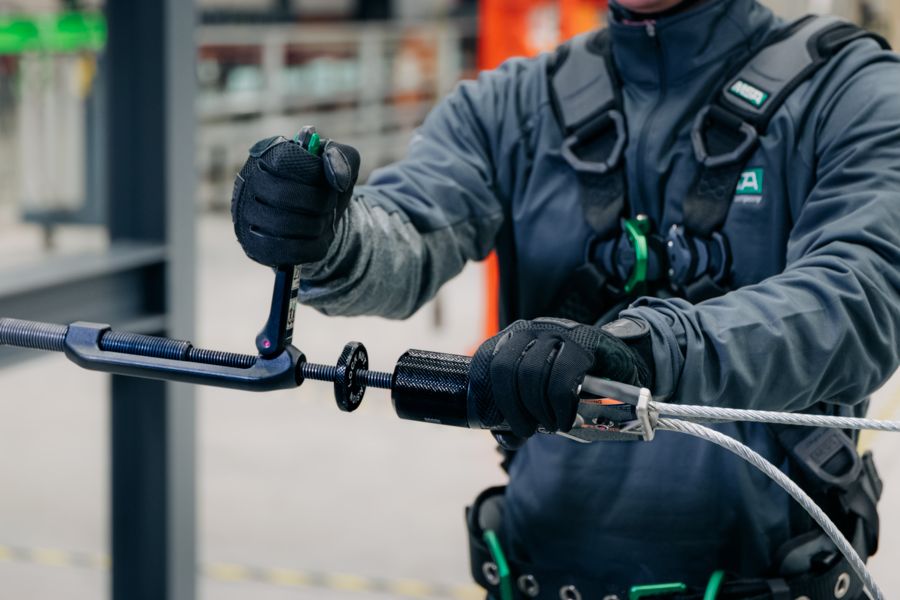
What Is a High Ticket Remote Closer and Why It’s in High Demand
A high ticket remote closer is a commission-based sales professional who specializes in closing deals for premium-priced products or services—typically $2,000 and above—without ever stepping into an office. These closers operate fully online, often conducting virtual calls with warm leads provided by a business. As online entrepreneurship booms, especially in coaching, consulting, SaaS, and digital marketing, the demand for skilled closers continues to rise. Businesses are realizing that to scale, they need not just lead generators but trained closers who can convert those leads into high-paying clients. The value of a high ticket remote closer lies in their ability to build trust, handle objections, and confidently guide a prospect to a buying decision. Unlike traditional sales reps focused on volume, these professionals focus on quality conversations and consultative selling. In today’s remote-first economy, this role has become one of the most sought-after and profitable commission-based positions available.
Key Responsibilities of a High Ticket Remote Closer
High ticket remote closers aren’t just reading scripts—they’re managing critical moments in a sales process that determines whether a business scales or stalls. One of the primary responsibilities is conducting virtual calls, often over Zoom, with potential clients who have already shown interest by booking an appointment. These are not cold calls, but rather warm, inbound leads looking for help with a specific need. Closers must ask powerful questions, listen deeply, and tailor the conversation to the prospect’s situation. They also need to handle objections with confidence, using empathy and logic rather than pressure. It’s not uncommon for closers to collaborate with appointment setters, marketing teams, and client success departments to ensure a seamless handoff. Maintaining detailed notes in a CRM and tracking performance metrics like close rate and call-to-show ratio are also crucial. Ultimately, a high ticket remote closer is the bridge between a potential lead and a paying client, making their role central to revenue generation.
Skills You Need to Succeed as a High Ticket Remote Closer
While sales experience is helpful, what truly sets apart a high ticket remote closer is emotional intelligence and the ability to build genuine rapport quickly. Listening is the superpower in this role—closers who understand the pain points and desires of a prospect can tailor their pitch with precision. It’s also essential to master objection handling, using questions and value-based conversation rather than manipulation. Strong communication skills, both verbal and written, are non-negotiable, especially in remote settings where tone, clarity, and pacing impact conversion. Confidence plays a huge role—not arrogance, but grounded confidence that reassures the buyer. You’ll also need tech skills to manage calls, CRMs, and scheduling software. Finally, resilience is key. Not every call ends in a sale, but the ability to bounce back and keep improving makes all the difference. Closers who constantly refine their craft often outperform those relying solely on charisma.
How to Get Started as a High Ticket Remote Closer with No Experience
Breaking into the world of remote closing is possible even if you’re starting from scratch. The first step is to invest in learning—whether through YouTube, paid sales bootcamps, or shadowing experienced closers. It’s important to master sales basics like the buyer’s journey, sales psychology, and closing frameworks such as NEPQ or the Straight Line Method. Practicing mock sales calls with other aspiring closers can dramatically boost your confidence. Many beginners find opportunities by networking in Facebook groups, LinkedIn communities, or inside programs that connect closers to offer owners. Being coachable and proactive is often more important than having a sales résumé. Once you’ve honed your skills, start applying to remote closing opportunities, focusing on those with solid lead generation systems and good commission structures. Approach every interview or role with the mindset of solving a problem, not just making a sale. As a beginner, your hunger, humility, and willingness to learn can fast-track your career.
How Much Can You Earn as a High Ticket Remote Closer
Earnings for high ticket remote closers can be substantial, especially when working with offers priced between $2,000 and $25,000. Most closers earn on commission, typically between 10% and 20% per sale. For example, closing a $5,000 offer at 15% commission nets you $750 per sale. Many closers work on multiple offers or join teams where they take three to five calls per day. With solid lead flow and a decent close rate, a beginner can expect to earn $3,000 to $7,000 per month. Experienced closers, especially those working in high-performing teams or on high-ticket SaaS or coaching programs, often earn $10,000 to $20,000 monthly. Income is closely tied to performance, so skills, consistency, and the quality of leads you receive play a massive role. Some closers also scale their income by mentoring others or taking leadership roles within sales teams. If you’re driven and results-oriented, this career path offers an uncapped income ceiling.
Tools and Tech Stack You’ll Use as a Remote Closer
Success as a high ticket remote closer isn’t just about talking well—it’s about using tools that streamline and support your sales process. Most closers rely heavily on CRM systems like HubSpot, Close, or GoHighLevel to track leads, calls, and conversions. You’ll also use scheduling tools like Calendly or Google Calendar to manage your appointments and reduce no-shows. Video conferencing platforms such as Zoom are essential for running high-converting sales calls. Some teams use Slack or Telegram for internal communication and updates, while email platforms help with nurturing leads or following up. Many closers also benefit from tools like Loom to send personalized video follow-ups or call recording platforms for performance reviews. A reliable internet connection, noise-canceling headset, and distraction-free environment are non-negotiables. Mastering your tech stack not only boosts efficiency but also signals professionalism—two qualities offer owners value highly when hiring remote closers.
Common Myths About High Ticket Remote Closing
One of the biggest myths is that you have to be pushy or manipulative to succeed. The best high ticket remote closers close with empathy and trust, not pressure. Another misconception is that this job is only for extroverts or natural-born salespeople. In truth, many top closers are introverts who’ve mastered frameworks and honed their listening skills. There’s also a belief that remote closing is a get-rich-quick gig, but it takes real skill, discipline, and strategy to perform consistently. Some think that closing is just about getting the sale, but in reality, it’s about enrolling the right clients who are a great fit for the offer. Another falsehood is that only those with corporate sales backgrounds can succeed. In fact, people from all walks of life—teachers, stay-at-home parents, and fitness coaches—have successfully transitioned into remote sales. Busting these myths is essential to creating an accurate picture of what this career truly entails.
Finding Remote High Ticket Closer Opportunities
Remote closer roles can be found across various industries—coaching programs, digital marketing agencies, e-learning companies, and SaaS businesses all need closers. Start by checking remote job boards, Facebook groups like Remote Closing Academy, and LinkedIn job listings. Many companies also post roles inside their email newsletters or within their private communities. When evaluating offers, check if they have proven lead flow, clear expectations, and transparent commission structures. Avoid programs that make big income promises without explaining their system. When you apply, treat your outreach like a sales pitch—demonstrate your understanding of their offer, show proof of your training or results, and convey enthusiasm. If possible, record a short video introduction. You can also build a “closer portfolio” that includes your sales framework knowledge, mock calls, or testimonials from mock clients. Building relationships with offer owners or sales managers is another powerful way to land consistent remote closing gigs.
Scaling Your Career as a Remote Closer
Once you’ve built foundational success as a high ticket remote closer, there are many paths to growth. Some closers move into team leadership, helping train and coach newer closers while still taking calls. Others become sales managers, performance coaches, or strategists working alongside business owners. Many experienced closers eventually launch their own high-ticket offers or build agencies that provide closing services to entrepreneurs. Personal branding on LinkedIn or YouTube can also open up inbound opportunities from business owners who want you to close for them. You can join masterminds or communities where collaboration leads to premium offers with even better commissions. Professional growth doesn’t stop—reading sales books, working with mentors, or investing in new sales certifications can refine your edge. Ultimately, the flexibility and scalability of this career are what attract so many ambitious professionals. Whether you want to work part-time from the beach or scale into a six-figure role, the path is there.
Frequently Asked Questions (FAQ)
Q1: Do I need previous sales experience to become a high ticket remote closer?
Not necessarily. While sales experience helps, many successful closers started with no background in sales. What matters most is your coachability, mindset, and willingness to learn proven frameworks.
Q2: How long does it take to land your first remote closing role?
It depends on how quickly you build skills and network. With focused effort, many people land their first role within 30–90 days of serious learning and practice.
Q3: Is high ticket remote closing a good career for introverts?
Yes. Introverts often excel because they listen well, ask thoughtful questions, and focus on building trust—key traits for effective closing.
Q4: What are the best industries for high ticket closers to start in?
Coaching, consulting, SaaS, online education, and digital marketing are great starting points due to high demand and established sales processes.
Q5: Can I do high ticket closing as a side hustle before going full-time?
Absolutely. Many closers begin part-time, especially if the offer has flexible call schedules. Once consistent, they transition into full-time roles.


